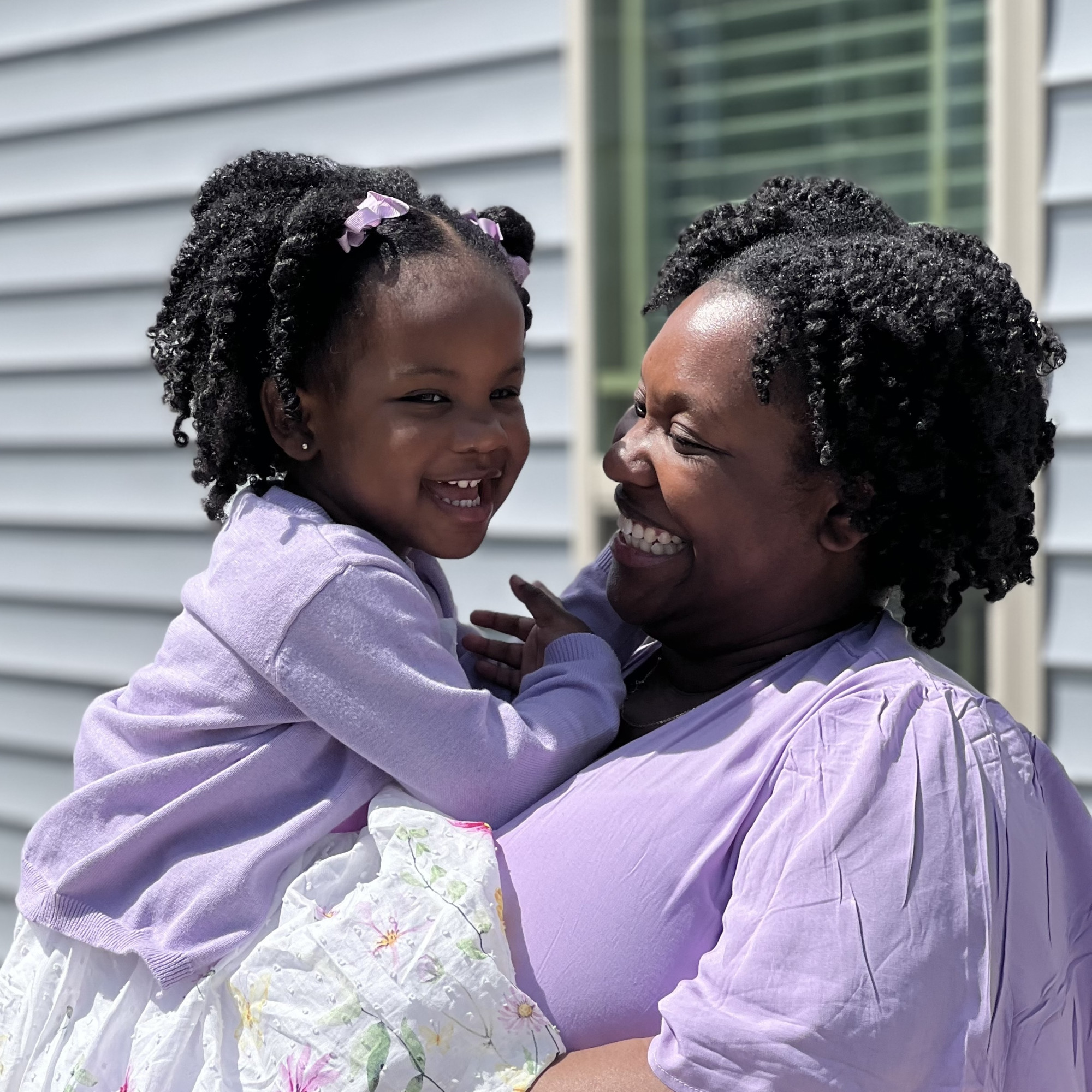
03/26/2024 | Child Development, Mental health and health
One Mom’s Journey with a Late Talker
By Alexis Dow, a mom to one daughter and Children's Trust of South Carolina's training associate Alexis Dow is mom to Riley, a beautiful…


By Alexis Dow, a mom to one daughter and Children's Trust of South Carolina's training associate
Alexis Dow is mom to Riley, a beautiful and bouncy almost three-year-old. Riley is a late talker and has started to find her voice through sign language, speech therapy and occupational therapy. Alexis, who lives in Columbia, generously shared her story and her lessons learned to help other parents facing similar challenges to give them a sense of peace and confidence.
Right around the time she turned one year old, I was worried that she was not saying many words. She was babbling, but she was also a little slow to crawl.
She would point and make this funny squawk when she wanted something. I could see her getting frustrated, and I was getting frustrated because she wasn’t using her words she was having a hard time communicating her needs. It was an unhelpful cycle that was happening more and more.
At Riley’s 12-month well-child visit, I had a fantastic conversation with our pediatrician. She made a referral for us to Baby Net. However, more than just the referral, I really feel like our pediatrician has been a partner with me on this. She also has a child who was slow to talk so she knew exactly what I felt. She was patient with my questions, affirmed my feelings and helped me get a plan of action.
I knew that my husband and I needed help, the kind of help that requires skills and training. Our pediatrician opened that door and has been taking those steps with us. I cannot tell you how much that meant to me.
BabyNet connects infants and toddlers with developmental delays to professionals in the community who can help. They work with children from birth to age 3.
After the referral is made, BabyNet contacts you and does an over-the-phone assessment. Then, they match you with an organization with the right therapy services. I did a lot of research, read the online reviews and talked with friends.
You have to stay on top of this, follow up with questions, and make sure your child’s file is not falling to the bottom of the pile. KNOW WHO TO CALL! The reality is, at least in this area, is that there is high demand and a shortage of providers. It took us four months to get her into therapy.
You are looking for a therapist who is a good fit for you and your baby. Are the session times going to work for your schedule? Her schedule? You need a consistent time to meet each week, and it needs to be when your child is rested and fed. (Therapy is challenging if they are hungry, tired or both!)
It took us a few tries to find that fit, but it was very important for me to be comfortable and confident with Riley’s therapist. You are your child’s best advocate, and sometimes you have to speak up if something isn’t working for you, and especially for your child.
I believe that being unable to see people’s mouths when they talked because so many were wearing masks, the collective social anxiety and the isolation and lack of socialization had an impact on her. We were all worried about her getting sick and didn’t want anything to happen. We closed ourselves off from experiences that could have helped her grow.
I hear anecdotally that there are A LOT of kids born in the COVID-19 days who are speech delayed. It will be really interesting to learn what researchers say as they do their studies of this crazy time.
I have this video of Riley saying mama from when she was 14 months. I know she can do it, but it breaks my heart that it has been so long since she said it. (Of course, she can say Daddy and eat.) However, I will hear it again and cannot wait for the day.

03/26/2024 | Child Development, Mental health and health
By Alexis Dow, a mom to one daughter and Children's Trust of South Carolina's training associate Alexis Dow is mom to Riley, a beautiful…


03/23/2024 | Mental health and health, Parenting
Children need nurturing and supportive relationships with parents and caregivers to help them know how to regulate their emotions and handle their…


03/14/2024 | Child Development, Parenting
Knowing how children grow is one of the best ways to set reasonable expectations for your child and yourself - and save everyone daily frustration.…
